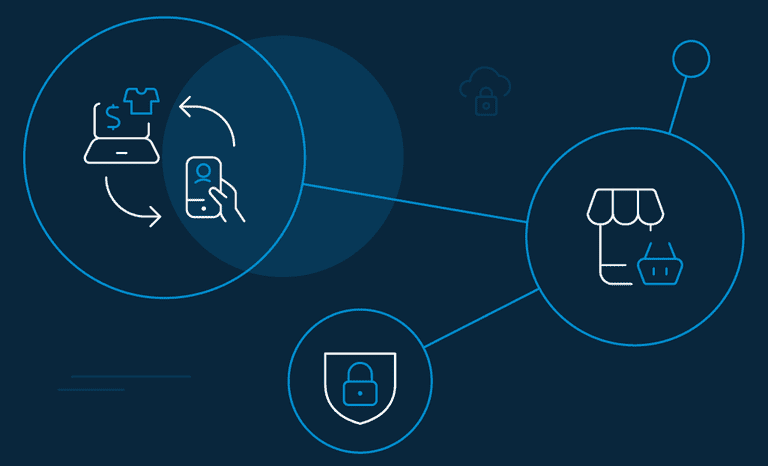Enhancing Security in E-commerce: A Cloud-Based Approach

In the rapidly evolving landscape of e-commerce, where the digital marketplace is flourishing, security stands as a paramount concern for businesses and consumers alike. Recognizing the critical role of security, a cloud-based approach has emerged as a powerful solution to fortify e-commerce platforms against the ever-present threat of cyberattacks. This article explores the intricacies of enhancing security in e-commerce through a cloud-based approach, unveiling how this synergy contributes to safeguarding sensitive data, building trust, and ensuring the resilience of online businesses.

1. Robust Encryption Protocols: A cloud-based approach to e-commerce security begins with robust encryption protocols. The cloud provides a secure environment for the transmission and storage of sensitive data, ensuring that customer information, payment details, and other confidential data are encrypted and protected from unauthorized access.
2. Threat Detection and Prevention: Cloud security services are equipped with advanced threat detection and prevention mechanisms. Leveraging machine learning and artificial intelligence, these tools can identify and thwart potential security threats in real-time, providing an added layer of defense against evolving cyber threats targeting e-commerce platforms.
3. Regular Security Updates and Patches: Cloud-based e-commerce platforms benefit from regular security updates and patches delivered by cloud service providers. This proactive approach ensures that vulnerabilities are promptly addressed, reducing the risk of exploitation by cybercriminals. This ongoing maintenance contributes to the overall security posture of the e-commerce ecosystem.
4. Secure Storage of Customer Data: Cloud technology allows for secure storage of customer data in compliance with industry regulations. By centralizing data storage in the cloud, e-commerce platforms can implement access controls, encryption, and other security measures to protect customer information, building trust and confidence among online shoppers.
5. Multi-Layered Access Controls: A cloud-based approach enables e-commerce businesses to implement multi-layered access controls. This means that only authorized personnel have access to specific areas of the platform and sensitive data. Granular access controls mitigate the risk of internal threats and unauthorized access to critical information.
6. Distributed Denial of Service (DDoS) Mitigation: DDoS attacks pose a significant threat to the availability of e-commerce platforms. Cloud-based security services often include DDoS mitigation measures that can absorb and deflect large-scale attacks, ensuring that the online store remains accessible to customers even during periods of heightened cyber threat activity.
7. Compliance with Industry Standards: Cloud service providers adhere to stringent industry standards and compliance requirements. By leveraging a cloud-based approach, e-commerce platforms can align with these standards, such as Payment Card Industry Data Security Standard (PCI DSS) for handling payment information. This not only enhances security but also demonstrates a commitment to regulatory compliance.
8. Identity and Access Management (IAM): Cloud-based IAM solutions play a pivotal role in enhancing security. E-commerce platforms can implement IAM to manage user identities, control access to resources, and enforce authentication measures. This ensures that only authenticated and authorized individuals can access sensitive areas of the platform.
9. Proactive Security Monitoring: Cloud security services offer proactive monitoring of e-commerce platforms. Continuous monitoring allows for the early detection of suspicious activities, unusual patterns, or potential security breaches. By identifying and addressing security incidents in real-time, businesses can mitigate the impact of cyber threats.
10. Disaster Recovery Planning: A cloud-based approach includes robust disaster recovery planning. In the event of a security incident or system failure, e-commerce platforms can quickly recover by leveraging cloud-based backup and recovery solutions. This ensures minimal downtime and contributes to the overall resilience of the business.
In conclusion, enhancing security in e-commerce through a cloud-based approach is not just a best practice; it’s a strategic imperative. The dynamic and scalable nature of the cloud, coupled with advanced security features, positions e-commerce platforms to navigate the complex cybersecurity landscape with confidence. As online businesses continue to thrive, the adoption of a cloud-based security approach will be instrumental in safeguarding customer trust and sustaining growth in the digital era.



